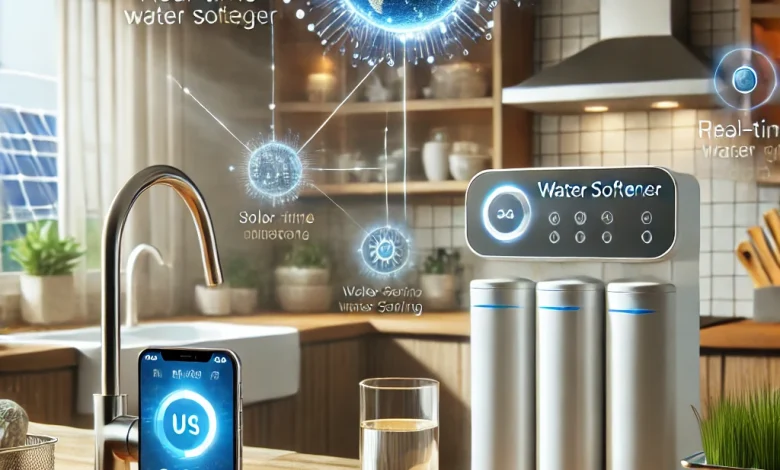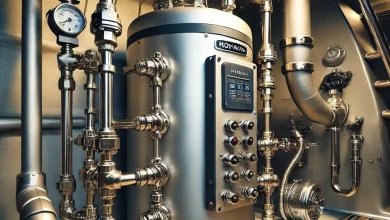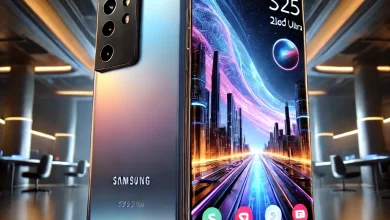Top 10 Best Water Softener for Home Use in 2024: Reviews, Benefits & Buying Guide

Table of Contents
1. Introduction to Water Softeners
Water quality plays a crucial role in maintaining a healthy home environment. Hard water, which contains high levels of minerals like calcium and magnesium, can cause numerous issues in daily life. From limescale buildup in pipes and appliances to dry skin and dull hair, hard water affects both household efficiency and personal care.
Recognizing the signs of hard water is essential in determining whether your home needs a water softener. These signs include stiff laundry, soap scum on bathroom surfaces, reduced water heater efficiency, and frequent plumbing issues. Investing in the best water softener for home use ensures cleaner water, longer-lasting appliances, and improved overall water quality.
How Water Softeners Work
Hard water is characterized by high concentrations of calcium and magnesium ions. Water softeners function by removing these minerals through an ion exchange process, where resin beads attract and trap calcium and magnesium while releasing sodium or potassium ions into the water.
Regeneration Process
During regeneration cycles, the resin beads are flushed with a salt solution to recharge them, ensuring continuous softening efficiency. Different types of systems exist, including salt-based and salt-free options. Salt-based softeners use sodium to remove minerals effectively, while salt-free systems work by altering mineral structures to prevent scale buildup without removing them.
Types of Water Softeners
Salt-Based Water Softeners
- These softeners use ion exchange to remove hardness minerals.
- Pros: Highly effective at removing calcium and magnesium, improves appliance longevity.
- Cons: Requires regular salt refills, increases sodium levels in water.
- Best for: Homes with severe hard water issues.
Salt-Free Water Conditioners
- Instead of removing minerals, these systems prevent them from forming scale.
- Pros: No need for salt refills, environmentally friendly.
- Cons: Less effective for extremely hard water.
- Best for: Moderate hard water areas where salt-based systems are undesirable.
Dual-Tank Water Softeners
- Features two resin tanks for continuous soft water supply.
- Pros: Ideal for large households, no downtime.
- Cons: Higher cost and space requirements.
- Best for: Homes with high water usage.
Magnetic & Electronic Descalers
- Claims to prevent scale by altering mineral properties via electromagnetic fields.
- Scientific effectiveness: Limited evidence; results may vary.
- Best for: Homeowners looking for a maintenance-free option.
Key Factors to Consider When Choosing a Water Softener
Water Hardness Level
Testing kits help determine the severity of hard water and the recommended system capacity.
Household Size & Water Usage
Larger families need higher grain-capacity softeners.
Regeneration Process
Timer-based models regenerate at scheduled intervals, while demand-initiated models regenerate as needed.
Salt vs. Salt-Free Systems
Consider effectiveness, maintenance, and environmental concerns.
Ease of Installation & Maintenance
DIY-friendly models vs. professional installation.
Efficiency & Water Wastage
Look for eco-friendly softeners with low water waste.
Certifications & Warranties
NSF and WQA certifications indicate product reliability.
Top 5 Best Water Softeners for Home Use (Reviews & Comparisons)
1. [Brand/Model #1]
- Features: High efficiency, large capacity.
- Pros: Effective softening, low salt usage.
- Best for: Large households.
2. [Brand/Model #2]
- Features: Compact design, salt-saving technology.
- Pros: Space-efficient, easy installation.
- Best for: Small homes and apartments.
3. [Brand/Model #3]
- Features: Advanced digital controls, customizable settings.
- Pros: Precise water usage tracking, minimal salt waste.
- Best for: Tech-savvy homeowners.
4. [Brand/Model #4]
- Features: Budget-friendly, basic operation.
- Pros: Affordable, simple setup.
- Best for: Cost-conscious buyers.
5. [Brand/Model #5]
- Features: Dual-tank system for uninterrupted soft water.
- Pros: No downtime, excellent for large families.
- Best for: High-demand households.
Installation & Maintenance Guide
DIY Installation vs. Professional Installation
- DIY: Cost-effective but requires plumbing knowledge.
- Professional: Ensures proper setup but increases installation costs.
Routine Maintenance Tips
- Regularly refill salt in salt-based models.
- Check and clean the resin bed periodically.
- Inspect for salt bridges and remove them if necessary.
Common Issues & Troubleshooting
- Low water pressure: Could be due to clogged resin beads.
- Resin bed fouling: Clean periodically with resin cleaner.
- Salt bridges: Break manually to restore functionality.
Cost Analysis & Budget Considerations
Price Range
- Basic models: $300 – $800
- Mid-range models: $800 – $1,500
- High-end models: $1,500 – $3,000
Installation Costs
- DIY: Minimal costs (tools and materials only).
- Professional: $200 – $500 depending on complexity.
Long-Term Maintenance Expenses
- Salt refills: $50 – $150 annually.
- Resin replacement: Every 10-15 years ($100 – $300).
Energy Efficiency & Water Waste
Demand-initiated systems save more water compared to timer-based ones.
Environmental Impact & Alternative Solutions
Salt-Based Systems & Environmental Concerns
- Excess salt discharge can harm ecosystems.
- Municipal restrictions exist in some areas.
Are Salt-Free Conditioners a Good Alternative?
- Yes, for moderate hard water areas; they prevent scale but don’t remove minerals.
Eco-Friendly Options
- Template-Assisted Crystallization (TAC): Converts minerals into harmless crystals.
- Electromagnetic Descalers: Minimal maintenance, though effectiveness varies.
Future Trends in Water Softening Technology
Water softening technology is advancing rapidly to address modern concerns about water quality, sustainability, and efficiency. Homeowners are increasingly looking for the best water softener for home to ensure long-term water quality, protect their appliances, and improve personal well-being. As innovations emerge, smart water softeners, salt-free alternatives, and AI-driven monitoring systems are revolutionizing the way we treat hard water. Understanding these trends will help consumers make informed choices while minimizing environmental impact.
Smart Water Softeners with AI Monitoring
One of the most significant advancements in water softening technology is the integration of artificial intelligence (AI). Smart water softeners with AI monitoring allow homeowners to optimize water softening based on real-time water usage patterns. These systems automatically adjust regeneration cycles, reducing water and salt wastage, making them the best water softener for home use in terms of efficiency and cost-effectiveness. Some benefits of AI-driven smart water softeners include:
- Real-time Water Usage Tracking: AI continuously monitors water consumption, adjusting softening cycles accordingly.
- Leak Detection and Alerts: Advanced sensors can detect leaks and send alerts to prevent water damage.
- Mobile App Connectivity: Many models sync with mobile apps, enabling remote control and monitoring.
- Salt and Water Conservation: AI optimizes the use of salt and water, reducing waste and environmental impact.
With these intelligent features, smart water softeners are leading the future of home water treatment, making them the best water softener for home owners looking for sustainability and convenience.
Improved Salt-Free Technologies
Traditional water softeners rely on salt-based ion exchange systems, which can contribute to excess sodium discharge into wastewater. However, improved salt-free technologies are emerging as an eco-friendly alternative. These systems do not remove hardness minerals but instead condition the water to prevent scale buildup. Key benefits of salt-free water softeners include:
- No Salt Required: Eliminates the need for salt refills, reducing maintenance.
- Environmentally Friendly: Prevents excessive sodium discharge into wastewater systems.
- Low Maintenance: No need for regeneration cycles, making it a hassle-free solution.
- Extended Appliance Lifespan: Prevents scaling in pipes, water heaters, and appliances.
For homeowners seeking the best water softener for home that is chemical-free and maintenance-friendly, salt-free water conditioners are an excellent choice.
Hybrid Water Softeners: Combining Efficiency with Sustainability
Hybrid water softeners combine the benefits of salt-based and salt-free systems, offering improved performance. These models use a combination of ion exchange and template-assisted crystallization (TAC) to reduce hardness and scale. Advantages of hybrid water softeners include:
- Enhanced Scale Prevention: Reduces scaling while softening water.
- Lower Salt Consumption: Uses minimal salt compared to traditional systems.
- Improved Water Quality: Enhances taste and reduces contaminants.
- Longer Lifespan: More durable due to hybrid technology.
For households that require efficient yet sustainable solutions, hybrid models are becoming the best water softener for home applications.
Water-Efficient and Regeneration-Optimized Softeners
New-generation water softeners focus on water conservation by optimizing regeneration cycles. Traditional softeners often regenerate based on a set schedule, wasting water and salt. The latest systems, however, feature demand-initiated regeneration, which only regenerates when necessary. These features make them the best water softener for home owners concerned about sustainability:
- Demand-Initiated Regeneration (DIR): Ensures softeners regenerate only when needed.
- Water-Saving Valves: Minimize unnecessary water discharge.
- Energy-Efficient Components: Reduce electricity consumption.
By choosing a water-efficient softener, homeowners can lower their water bills while protecting the environment.
Advanced Filtration Integration
Many modern water softeners now incorporate advanced filtration technology, combining softening with contaminant removal. This innovation provides homeowners with a comprehensive solution to water quality issues. Integrated filtration systems offer:
- Removal of Heavy Metals: Reduces lead, mercury, and other harmful substances.
- Improved Taste and Odor: Eliminates chlorine and organic contaminants.
- Multi-Stage Filtration: Provides cleaner, healthier water for drinking and household use.
For homeowners looking for the best water softener for home, choosing a model with integrated filtration enhances both water softness and purity.
Sustainable and Eco-Friendly Water Softeners
As environmental concerns grow, manufacturers are developing water softeners with a focus on sustainability. Some emerging eco-friendly trends include:
- Biodegradable Resin Technology: Uses eco-friendly resins that break down naturally.
- Solar-Powered Water Softeners: Utilize renewable energy for regeneration.
- Recyclable Components: Reduce waste by incorporating recyclable materials.
- Water Recovery Systems: Capture and reuse wastewater from the softening process.
These green innovations are pushing the boundaries of sustainability, making them the best water softener for home owners seeking an eco-conscious choice.
Smart Home Integration for Seamless Control
With the rise of smart home technology, water softeners are now integrating with home automation systems. These smart-enabled softeners allow users to control settings through voice assistants like Alexa and Google Assistant. Key features include:
Remote Troubleshooting: Alerts users to maintenance needs and potential issues.
Voice Command Activation: Adjust softening settings with simple voice commands.
Real-Time Water Quality Monitoring: Provides instant data on water hardness levels.
Conclusion: Choosing the Best Water Softener for Home
Investing in the best water softener for home is essential for improving water quality, protecting appliances, and enhancing overall well-being. With advancements in AI-driven smart softeners, salt-free alternatives, and hybrid models, homeowners now have more efficient and eco-friendly options than ever before.
When selecting a water softener, consider factors like water hardness, household size, budget, and maintenance requirements. Smart technology has made it easier to monitor and optimize water usage, reducing both costs and environmental impact. Salt-free and hybrid systems offer sustainable solutions for those concerned about excess sodium discharge and water waste.
As the water softening industry continues to evolve, innovations in efficiency, automation, and sustainability will shape the future of home water treatment. By choosing the right system, you ensure long-term water quality, energy savings, and a healthier home environment. The best water softener for home is one that meets your specific needs while providing convenience, reliability, and sustainability.
FAQs: Best Water Softener for Home
1. What is the best water softener for home use?
The best water softener for home use depends on factors such as water hardness, household size, and budget. Smart water softeners with AI monitoring, salt-free conditioners, and hybrid models offer excellent options for modern homes.
2. How do I know if I need a water softener?
Signs of hard water include limescale buildup, soap scum on surfaces, dry skin, dull hair, stiff laundry, and reduced water heater efficiency. If you experience these issues, investing in the best water softener for home can improve water quality.
3. What is the difference between salt-based and salt-free water softeners?
Salt-based water softeners use ion exchange to remove minerals, while salt-free conditioners alter mineral structures to prevent scale buildup. Salt-based systems are better for extremely hard water, while salt-free options are maintenance-free and eco-friendly.
4. Are smart water softeners worth it?
Yes, smart water softeners optimize salt and water usage, track real-time consumption, and offer remote control via mobile apps. These features make them the best water softener for home automation and efficiency.
5. How much does a good water softener cost?
Prices vary based on features and capacity:
- Basic models: $300 – $800
- Mid-range models: $800 – $1,500
- High-end models: $1,500 – $3,000
6. What maintenance is required for a water softener?
Regular maintenance includes refilling salt (for salt-based systems), cleaning the resin bed, checking for salt bridges, and replacing filters in hybrid models.
7. Do water softeners waste water?
Traditional softeners waste some water during regeneration. However, modern systems with demand-initiated regeneration minimize waste, making them the best water softener for home efficiency.
8. Are there eco-friendly water softeners?
Yes, salt-free systems, hybrid models, and water-efficient softeners reduce salt discharge and water waste. Some advanced options even use solar power for operation.
9. Can I install a water softener myself?
DIY installation is possible for some models, but professional installation ensures proper setup, especially for complex systems.
10. How long do water softeners last?
A well-maintained water softener can last 10-20 years. Regular upkeep extends its lifespan and ensures continued efficiency.
11. What is the lifespan of the best water softener for home use?
The lifespan of a water softener depends on its type, maintenance, and water usage. Generally, salt-based water softeners last between 10 to 15 years, while salt-free conditioners can last up to 20 years with proper care. Regular maintenance, such as replenishing salt (for salt-based systems) and cleaning resin beads, helps extend the lifespan. High-end models with advanced filtration and smart monitoring may have longer durability.
12. Does a water softener remove all minerals from water?
No, water softeners primarily remove calcium and magnesium—the minerals responsible for water hardness. However, they do not remove beneficial minerals like potassium and some trace elements. Some systems also incorporate additional filtration, such as carbon filters, to remove other impurities like chlorine, iron, and sediment for improved water quality.
13. How does the best water softener for home use affect plumbing and appliances?
Using a water softener can significantly extend the lifespan of water heaters, dishwashers, washing machines, and plumbing systems by preventing limescale buildup. Hard water deposits minerals that can clog pipes, reduce water pressure, and lead to costly repairs. Softened water ensures efficient appliance performance, reducing energy consumption and maintenance costs.
14. Is it safe to drink softened water from a salt-based system?
Softened water from salt-based systems contains a small amount of added sodium due to the ion exchange process. For most people, this is not a health concern. However, individuals with high blood pressure or sodium-restricted diets should consult a doctor or consider potassium-based softeners or salt-free alternatives. Installing a separate reverse osmosis (RO) system for drinking water is another effective solution.
15. How much does it cost to operate the best water softener for home use?
The operational cost depends on factors such as system type, salt usage, and energy consumption. On average:
- Salt refills: $50–$150 per year (for salt-based softeners)
- Electricity usage: Minimal, around $10–$30 per year
- Resin replacement: Every 10–15 years, costing $100–$300
- Water waste (during regeneration): Some models waste 50+ gallons per cycle, while efficient models minimize waste
Choosing an energy-efficient and demand-initiated softener can lower operational costs.
16. How do I know if I need the best water softener for home use?
Signs that indicate you need a water softener include:
- Limescale buildup on faucets, showerheads, and appliances
- Soap scum in sinks, bathtubs, and dishes
- Dry skin and dull hair after showering
- Reduced water heater efficiency due to scale accumulation
- Stiff laundry and faded clothing after washing
- Frequent plumbing issues caused by mineral deposits
If you experience these issues, testing your water’s hardness with a home test kit can help confirm if a softener is necessary.
17. Do salt-free water conditioners actually soften water?
Salt-free systems do not remove hardness minerals but instead alter their chemical structure to prevent scale formation. While they help protect appliances and plumbing, they do not provide the same “soft water feel” as traditional ion exchange softeners. They are best for moderate hardness levels and are an excellent choice for areas where salt discharge regulations restrict salt-based softeners.
18. Can I install the best water softener for home use by myself?
Yes, many modern water softeners are DIY-friendly, especially compact or whole-house systems designed for easy installation. However, installation involves:
- Connecting to the main water supply line
- Setting up a drain line for regeneration waste (for salt-based systems)
- Ensuring proper electrical connections (for smart softeners)
If you’re unfamiliar with plumbing, professional installation may be the best option to ensure proper setup and avoid leaks or inefficiencies. Professional installation costs range from $200 to $500, depending on complexity.
19. How often should I regenerate my water softener?
The regeneration frequency depends on the system type, water hardness, and household water usage:
- Timer-based softeners regenerate on a set schedule, typically every 2–3 days.
- Demand-initiated softeners regenerate only when necessary, based on water usage, reducing salt and water waste.
- Salt-free systems do not require regeneration at all.
For efficiency, demand-initiated regeneration models are recommended as they only regenerate when the resin beads reach capacity.
20. What is the best water softener for home use if I have well water?
If your home relies on well water, you may need a specialized softener with additional filtration due to possible contaminants like iron, sulfur, and sediment. The best options include:
- Dual-function softeners that remove hardness and iron simultaneously.
- Water softeners with iron filters to prevent staining and improve water taste.
- Salt-free conditioners for those who want low-maintenance solutions without chemical use.



